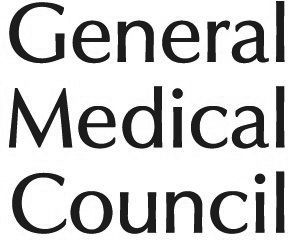Dr David Hulse, Consultant in Sport and Exercise Medicine
Dr David Hulse
Consultant in Sport and Exercise Medicine
Dr David Hulse BSc(Hons) MSc(Sports Med) MB ChB FFSEM
Consultant in Sport and Exercise Medicine
Dr David Hulse
Consultant in Sport and Exercise Medicine BSc(Hons) MSc(Sports Med) MB ChB FFSEM

About Dr David Hulse
Dr David Hulse is a highly experienced consultant in sport and exercise medicine, with expertise in cycling medicine, endurance sport, and injury rehabilitation. He is based at The Institute of Sport Exercise & Health (ISEH). Dr Hulse is particularly skilled in assessing and diagnosing cycling injuries, managing other sports injuries, and optimizing health and performance through coaching.
Dr Hulse earned his medical degree from the University of Glasgow and trained in trauma and orthopaedic surgery before specializing in sports injury rehabilitation and the physiology of athletic training. He completed a master's degree in sport and exercise medicine at the University of Nottingham and was one of the first doctors in the UK to specialize in sports and exercise medicine in London.
In addition to his clinical work, Dr Hulse is dedicated to medical education and has contributed to the education and development of the cycling industry. He has also worked as a consultant at Headley Court, the UK Defence Medical Rehabilitation Centre, leading lower limb injury rehabilitation and the diagnosis and management of exercise-induced leg pain.
Dr Hulse holds several qualifications, including a BSc(Hons) in Immunology from the University of Glasgow, an MB ChB from the same institution, and an MSc in Sport and Exercise Medicine from the University of Nottingham. He is a Fellow of the Faculty of Sport and Exercise Medicine (FFSEM) and has a PgCert in Musculoskeletal Ultrasound from AECC, Bournemouth. He was appointed as a consultant in 2009. His interests include advancing medical education and improving rehabilitation techniques for sports injuries.
Areas of expertise
- Endurance sports injuries
- Injury rehabilitation
- Musculoskeletal injury
- Musculoskeletal rehabilitation
- Musculoskeletal ultrasound
- Sports injuries
- Sports medicine
Professional memberships

Articles by Dr David Hulse
Comparison of dynamic ultrasound and stress radiology for assessment of inferior glenohumeral laxity in asymptomatic shoulders.
Intramuscular compartment pressure measurement in chronic exertional compartment syndrome: new and improved diagnostic criteria.
Effects of anterior compartment fasciotomy on intramuscular compartment pressure in patients with chronic exertional compartment syndrome.
Surgical outcomes for chronic exertional compartment syndrome following improved diagnostic criteria.
Biomechanical differences between cases with chronic exertional compartment syndrome and asymptomatic controls during walking and marching gait.
Biomechanical differences between cases with suspected chronic exertional compartment syndrome and asymptomatic controls during running.
Plantar pressure differences between cases with symptoms of clinically diagnosed chronic exertional compartment syndrome and asymptomatic controls.









